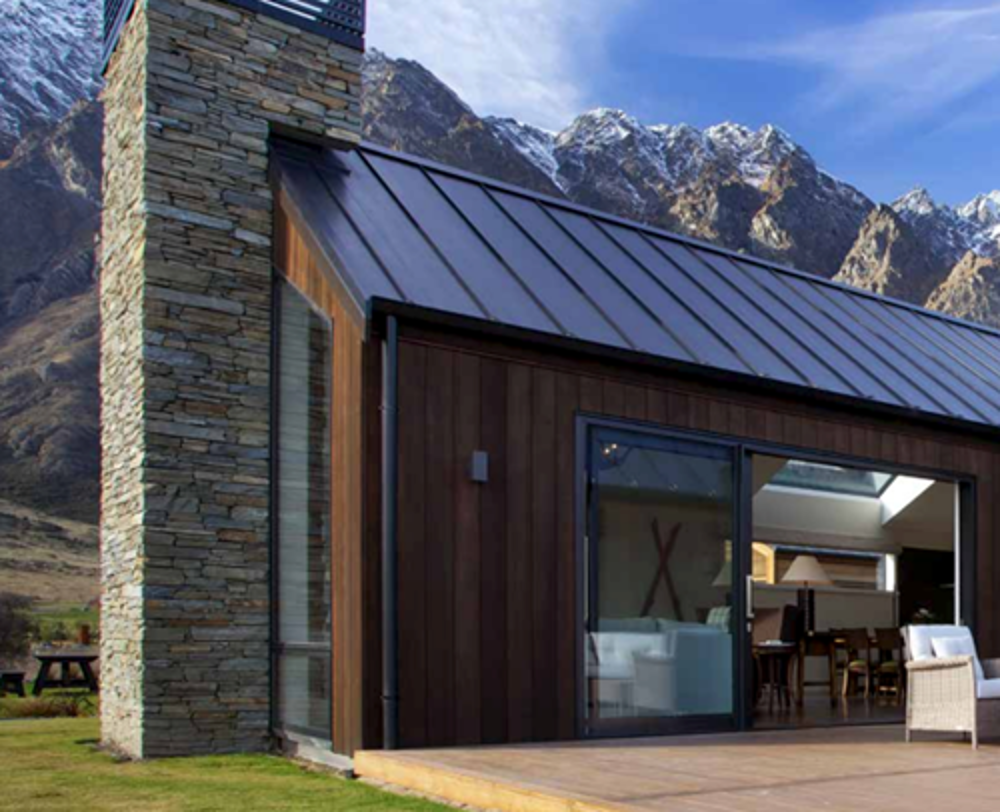-
When designing your new home it is important to consider how energy efficient you would like it to be. Efficient homes are created by making informed decisions on construction methods, appliances, lighting and water.
By taking advantage of the natural environment, designers can often include passive solar heating and cooling and energy efficient landscaping strategies.
Outlined in this article are some key areas that should be considered at design and specification stages to ensure your new home is warm, healthy and efficient.
Home Orientation
Location is incredibly important when it comes to heating and cooling efficiency in your home. Take advantage of the way your section faces, and your home’s orientation to the sun. Place living areas north-facing to optimise sunshine hours and keep your home warm and dry. Minimise windows on the south side to prevent extensive heat loss.Wall and Roof Insulation
The NZ Building Code specifies minimum levels of insulation for new homes. For a little additional investment, it is possible to substantially upgrade the thermal envelope of your new home with thicker insulation, thereby achieving a higher “R Value” (An R-value is a rating which measures how well insulation can resist heat flow. ‘R’ stands for thermal resistance) resulting in a warmer home for you. This could include utilising thicker framing on external walls to enable higher levels of insulation to be used.Floor Insulation
If using a concrete slab, it is becoming increasingly common to also insulate your slab. This has the added advantage of reducing heat loss from thermal bridging around the perimeter of your slab, and increasing the effectiveness of in-slab heating if being used.External Joinery
Consider the location and size of your windows, and also look at options for improving the thermal efficiency of your joinery. Options can include upgrading from standard double glazing to more efficient forms of glazing with “Low-E” films and inert gas-fill as well as upgraded frames with thermal breaks. Also consider thermal drapes in your decorating plans as these contribute retaining heat in the winter, and keeping the heat out in the summer.Efficient Heating
Consider efficient forms of heating that are appropriate for the environment you are building in. These could include in-slab, radiators, centrally ducted, heat- pumps or modern wood fires.Water Heating Options
There are numerous water heating options in the market, the most common being Electric, Heat pump, Gas and Solar. We can assist in specifying the most appropriate system for you and your intended usage of your home.Energy Efficient Lighting
Choosing energy efficient LED lighting will not only reduce the energy your home draws for lighting, but has an added benefit of ensuring there are no voids in roof insulation which older style downlights required. These voids and the necessary openings in the light fittings created a “thermal chimney” which allowed heated air to funnel to your roof space.Ventilation
Ensure appropriate forms of mechanical ventilation are installed to help extract moisture from cooking and bathing activities, as well as providing sufficient air changes to effectively control moisture throughout the home.Energy Management
The use of some form of home automation can enable efficient use of appliances and systems within your home. This enables you to manage when certain appliances are operating, and allows for the reduction of energy usage of your home with the added benefit of remote control for certain features. We have systems available that can be installed for much less than you might think.Energy Generation
The installation of Photo-Voltaic (PV) solar panels has become more prevalent in recent years as these systems have also become far more cost effective. The most common installation is for “On-Grid” or“Grid-tied”systems, which utilise energy as it’s generated, and sells any surplus to the grid. There are multiple storage options available as well, which have the potential to reduce your homes peak energy demand for grid supplied energy.Energy Efficient Appliances
Utilise Energy efficient appliances in all areas of your home. Consider especially those appliances that are “always on” such as refrigerators, freezers and others that rely on “stand-by”mode.Water Usage
Install water efficient appliances and fixtures, including toilets and low-flow shower heads. If appropriate for your area consider grey water re-use and rainwater harvesting.
Building Efficient Houses with David Reid Homes

Filed under:
- Build Advice